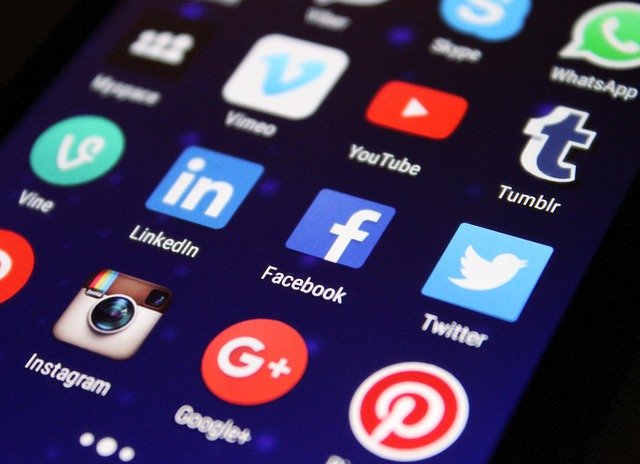Social media advertising refers to the process of promoting university programs, events, and initiatives through various social media platforms such as Facebook, Instagram, Twitter, and LinkedIn.

Social media advertising refers to the process of promoting university programs, events, and initiatives through various social media platforms such as Facebook, Instagram, Twitter, and LinkedIn.
Social media advertising has become increasingly important for universities as it enables them to connect with a large and diverse audience of prospective students, alumni, donors, and community members.
With the majority of individuals spending a significant amount of their time on social media platforms, universities have the opportunity to create targeted campaigns that can reach their intended audience.
Recent reports indicate that social media advertising has become a crucial tool for universities to increase their brand awareness, generate leads, and ultimately increase enrollment.
For instance, a study conducted by Hootsuite revealed that the majority of university marketers believe that social media advertising has a positive impact on their enrollment numbers.
Additionally, according to Statista, the global social media advertising spend is projected to reach $110 billion by 2023, highlighting the increasing importance of social media advertising for universities.
Targeting Prospective Students
One of the primary benefits of social media advertising for universities is its ability to effectively target prospective students.

With the ability to narrow down target demographics based on factors such as age, location, interests, and behaviors, universities can reach individuals who are more likely to be interested in their programs and initiatives.
For example, a university might target its social media advertising toward high school students in a particular region who have shown an interest in science and technology. By doing so, the university can create campaigns that resonate with this specific audience and increase the likelihood of conversion.
Several universities have successfully implemented targeted social media advertising campaigns, resulting in increased enrollment numbers and engagement rates.
For instance, the University of Phoenix, a well-known online university, utilized Facebook advertising to target individuals who had previously expressed interest in higher education. This resulted in a 37% increase in applications and a 32% increase in enrollment.
Social media advertising also provides universities with the opportunity to reach a wider audience. With the ability to promote their programs and initiatives on multiple social media platforms, universities can connect with individuals who may not have otherwise been aware of their offerings.
Furthermore, social media advertising allows universities to leverage the power of word-of-mouth marketing. By creating engaging campaigns and encouraging social media users to share their content with their networks, universities can expand their reach even further.
Building Brand Awareness
Brand awareness is crucial for universities as it helps to establish a positive reputation and differentiate them from competitors.

With the increasing competition in the higher education marketplace, it is more important than ever for universities to effectively build and promote their brand.
Social media advertising provides universities with a powerful tool to build brand awareness. By creating targeted campaigns that highlight their unique offerings, universities can increase their visibility and reach a wider audience.
Several universities have successfully implemented social media advertising campaigns that have significantly increased their brand awareness.
For example, the University of California, Berkeley, utilized Instagram advertising to promote its programs and campus culture, resulting in a 16% increase in website traffic and a 5% increase in inquiries.
Social media advertising also provides universities with the opportunity to stand out in a crowded marketplace. With the ability to create eye-catching and engaging campaigns, universities can capture the attention of prospective students and differentiate themselves from competitors.
Additionally, social media advertising allows universities to showcase their values and mission. By highlighting their commitment to diversity, sustainability, and other important issues, universities can establish themselves as leaders in their respective fields and attract like-minded individuals.
Fostering Community and Engagement
Social media advertising provides universities with an effective means to engage with current and prospective students.
![Higher Education Marketing 2023 and Beyond [Detailed Analysis], Higher Education Marketing, Education Marketing, Education PR, Digital PR, Public Relations, Digital Marketing, social media, SEO for Higher Education, Digital Marketing for Higher Education](https://firdoshkhan.in/wp-content/uploads/2022/11/Higher-ED-Marketing-Content.jpg)
By creating campaigns that encourage interaction and foster a sense of community, universities can strengthen their relationships with their target audiences.
Several universities have successfully implemented social media advertising campaigns that have resulted in increased engagement and community building.
For example, the University of Oregon utilized Instagram advertising to promote its campus events and activities, resulting in a 20% increase in event attendance and a 35% increase in Instagram followers.
Social media advertising also provides universities with the opportunity to showcase their campus culture and values. By creating campaigns that highlight their commitment to diversity, sustainability, and other important issues, universities can build a sense of community and attract like-minded individuals.
Furthermore, social media advertising allows universities to foster engagement and interaction with their target audiences. By creating campaigns that encourage user-generated content and social sharing, universities can increase their visibility and reach a wider audience.
In addition to engaging with prospective students, social media advertising can also be used to build a sense of community among current students.
By creating campaigns that promote campus events and activities, universities can encourage students to connect with each other and become more involved in campus life.
To Conclude
Social media advertising offers numerous benefits for universities looking to enhance their marketing efforts. By creating targeted campaigns that reach specific demographics, universities can attract more prospective students and increase their enrollment rates.
Social media advertising also provides universities with the opportunity to build their brand and stand out in a crowded marketplace, while fostering a sense of community and engagement among current and prospective students.
The success of social media advertising campaigns implemented by several universities highlights the potential of this marketing strategy.
By utilizing social media platforms such as Instagram, Facebook, and Twitter, universities can effectively promote their unique offerings, campus culture, and values to a wider audience.
Therefore, it is essential for universities to consider social media advertising as part of their marketing strategy. With the continued growth of social media usage, universities that fail to leverage these platforms risk falling behind their competitors and missing out on potential opportunities.


